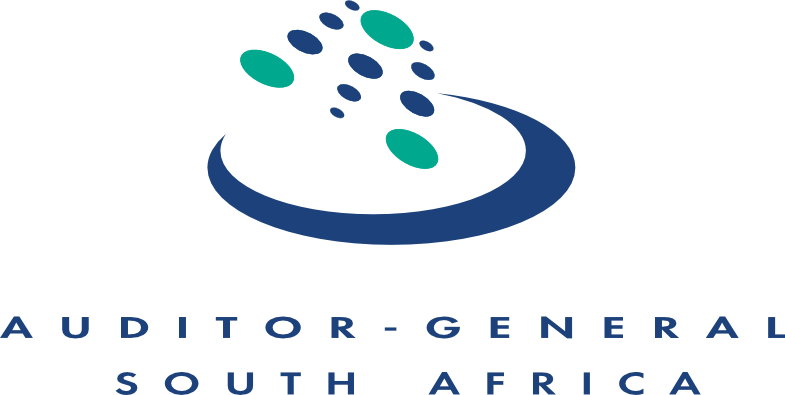Over the past four years. we have incrementally implemented all elements of the MI definition and increased the number of auditees at which we implemented the MI process. We focused on auditees where we could have the greatest impact, using our resources optimally to ensure the quality of our processes.
The overall aim of our expanded mandate is to:
- promote better accountability
- improve the protection of resources
- enhance public sector performance and encourage an ethical culture
- strengthen public sector institutions to better serve the people of South Africa.
Strong and clear concept of MI
We enforce the concept of MIs by applying the 3R process (recommendation, referral, and remedial action). The success of the mechanism is not only rooted in recovering money or assets, but also in preventing losses, improving internal controls and changing public sector culture.
Our initial reporting to Parliament focused on systematically implementing the powers at our auditees. Now this focus is beginning to demonstrate impact.
Using our expanded mandate
As in previous years, we remained fully committed to implementing the enhanced powers given to our office – without fear, favour or prejudice – to instil an effective Pati culture across government and bring about a better life for the people of South Africa. As per our target for 2023-24, we implemented the MI mechanism at 80% of our auditees (with only the smaller auditees to be included in 2024-25).
If accounting officers and authorities, supported by their political leadership, fulfil their legislated responsibilities and commit to taking swift action when we notify them of an MI, there is no need for us to use our remedial and referral powers.
Yet, we do not hesitate to use these powers when accounting officers and authorities do not deal with MIs with the required seriousness.
We are pleased with the impact the implementation of our expanded mandate is having, as demonstrated by the increased attention given to our audit process and outcomes, action being taken to address our findings and, in some cases, prevention and recovery of financial loss.
AGSA adherence to timelines on newly raised MIs
We acknowledge that we need to speed up the processing of MIs across the organisation. We ended the year with a 41% achievement for adhering to timelines on newly raised MIs, as opposed to the 60% targeted. Some of our challenges arise from the pressure to finalise the regularity audit within the legislated timelines, which means that MIs are not always raised in time, or that the accounting officer or authority often responds when the audit team is already engaged in the next audit cycle. Aside from change management engagements to ensure that MIs are attended to continuously, we also believe that stabilising the MIU will help us to better deal with and process MIs within our own timelines going forward.
Eradication of backlog of MIs
We noted that the MIs remain in the appropriate action category for lengthy periods as accounting officers and authorities deal with the issues raised. This necessitated action to assist accounting officers and authorities to resolve the MI or to consider whether we should take the next step in the MI process if the actions are not having the desired impact.
During the year, we implemented initiatives to understand and consider the MIs in the system that were older than 18 months. We have successfully cleared 95% of the backlog MIs. These MIs require continuous monitoring to ensure that auditees do not back-track on their progress in resolving or appropriately addressing the MIs. Activating the accountability ecosystem would assist in fast-tracking these matters.
For example, MIs that have been in the system for a long time, relating to the South African Postbank and Transnet, were concluded by the end of the financial year. The two Postbank matters were recommended for referral to the Directorate for Priority Crime Investigation, while the Transnet matters were concluded as the accounting officer had addressed them adequately.
Important to note is that MIs being investigated, referred by the auditee, processed in court, in disciplinary action, or in the process of litigation are not regarded as backlog MIs.
We learned the following lessons in 2023-24 on how to effectively eradicate the MI backlog:
- Quick and effective decision-making by leadership is critical.
- The appropriate capacitation of the MIU needs to remain a focus area for leadership
- It is important to identify the exact areas in the MI process that are causing challenges and ensure that we deal with these going
High-impact MIs
In 2023-24, we committed to producing high- impact MIs. The ideal is that every MI we raise must contribute greatly to the culture shift needed in government. A high-impact MI incorporates the elements of the overall aim of our MI process.
In 2023-24, we raised 159 high-impact MIs against the target of 69. This target is not just a number – it shows a deep understanding of our auditees and the areas that need enforcement. The high-impact MIs relate to several instances of substantial harm, abandoned construction projects (resource management), the misuse of public resources and the breach of fiduciary duty – the first of these MIs we have raised.
Going forward, we intend to keep track of the 159 high-impact MIs to assess their effect on auditees, especially as it relates to performance and accountability.
Processing MIs
MI recommendations
During the year, we made 23 recommendations for national and provincial MIs and 24 for local government MIs where the accounting officer or authority did not take action to satisfactory resolve the MI. As at end March 2024, these recommendations were at different stages, of the MI process including the assessment stage. We carefully consider requests from accounting officers or authorities for additional time to deal with the MIs. The MIU is in constant contact with these accounting officers and authorities to clarify the requirements and to monitor the implementation of the recommendations.
MIs in remedial action
Remedial action is taken where the accounting officer or authority is not adequately dealing with the MI after a recommendation was issued to them. We recorded 23 MIs that were in the remedial action stage by the end of the financial year, all within the local government sphere.
We engaged the accounting officers and mayors of these municipalities to ensure that the MIs are getting the required attention at the appropriate level.
Stabilising the MIU to drive an effective and efficient MI process
As part of adequately supporting our MI process, we focused on stabilising and incapacitating our MIU to enable the speedy resolution of MIs in the system. We developed, approved and implemented the MIU capacitation plan in 2023-24. The plan focuses on stabilising the leadership of the unit by appointing a business unit leader and a deputy business unit leader, filling other vacant positions and investing in training the new appointees so that they can effectively and efficiently perform their duties. We have successfully stabilised the unit through the collaborative effort of the executive leadership that kept the matter at the top of their agenda at leadership meetings.
These interventions aim to enhance the efficiency and overall performance of the MI process, making it more effective for both our audit business units and our auditees. From 2024-25, we will monitor the implementation of the annual deliverables contained in the MI end-to-end review report.
Impact of MI process
Reflecting on the MI implementation journey thus far, we have seen several successes despite some remaining challenges. We effectively implemented our MI process. Our influence approach in activating the accountability ecosystem to support this process had a positive impact. In some cases, the proactive action taken by accounting officers and authorities resolved the MIs.
Our continued message to all roleplayers in the accountability ecosystem is that preventing MIs is more effective than having to deal with their impact. Money and public resources that have been lost are difficult – or sometimes even impossible – to recover and harm caused to the public or public sector institutions is often irreversible.
Investigations and disciplinary processes to enable consequence management are costly, can take long to complete, and create discomfort for all involved. Strong preventative and detective controls remain the best investment for government.
We demonstrate the successes banked in implementing our MI process below by listing the financial losses recovered, prevented or in the process of being recovered. The table shows the accumulated amounts until the 2022-23 financial year-end for the two audit cycles.
The MI process has also resulted in internal control improvements to prevent a recurrence of irregularities, the identification of responsible officials and disciplinary processes completed or in progress, the institution of fraud or criminal investigations, and supplier contracts being stopped where money was lost.
Conclusion
2023-24 has been a noteworthy year when it comes to our work on MIs, with the organisation making strong strides both internally and externally on the MI journey. Externally, we saw the mechanism being rolled out at most of our auditees (we are on track to reach 100% coverage by the end of 2024-25, as per our implementation plan) and the impact thereof has been significant. Internally, we successfully achieved all but one of the six set performance targets, including the stabilisation and improved effectiveness of our MIU. This internal stabilisation and effectiveness contributed to better guidance and support to our audit teams – and greater traction in their work on MIs.
Our focus for the coming year will be on sustaining these gains while implementing more improvement initiatives, including the recommendations emerging from the MI process end-to-end review.



